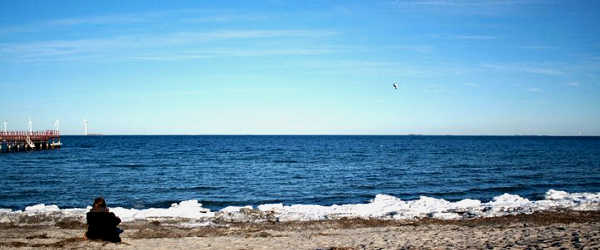
The Heart of Carrying On
Essays, Literature, MemoirToday marks one year since Gabrielle’s death. It’s still hard for me to grasp that she’s gone.
We danced together in Grades 11 and 12 back home in Richmond, BC and would bump into each other at various events around the community, but she was never a close friend. Still, we always hugged when we saw each other and enjoyed quick catch-ups about school, dance, friends, life.
Life.
It’s something that we all take for granted, something we strive to understand and to find meaning within. It’s complicated, too short; it can be painful and it can be wonderful.
If Gabi, as she was affectionately called, were still alive, she’d be in her fourth year of business school at the University of Western Ontario, just shy of 22-years-old. Instead she’s gone, taken away by sadness deeper and pain more severe than I can even begin to comprehend. Gabi committed suicide, ending her life way before its expiry date and in doing so, leaving an empty, gaping space in the hearts of many of us.
It’s strange to me that I was so deeply affected by Gabi’s death considering she wasn’t someone I knew well. I never knew about the heartbreak that was inside her, driving her into such a dark place that it ultimately resulted in her taking her own life. She was always so happy, so full of spirit; she was popular, gorgeous, smart, giving, and successful. When I heard that she was missing in the downtown Vancouver area, I was confused and unsettled to be sure, but nowhere near as worried as I would’ve been if I’d known she was ill.
But this depression wasn’t something that had been with her for a long time, which perhaps is why I didn’t know about it beforehand; the change was sudden and it was drastic. For the vast majority of Gabi’s life she was happy, lively, thankful, spirited. It wasn’t until the end of last September that something shifted within Gabi, something her family and friends still do not understand. It was powerful, whatever it was, and it caused her great pain. Because Gabi had no history of depression, multiple doctors said she would have a quick and easy recovery, soon getting back to the cheerful girl everyone knew was still there. But despite all the love and help she was given, the pain became too much to bear and within nine weeks she was gone.
I remember talking to my mom, who was back in Richmond (I now live in Toronto), on the phone the day Gabi went missing. I told her to let me know if she heard anything. It was the next morning when she called.
“They found Gabi,” my mom said.
“Oh, good!” I said, relieved that everything was normal again.
“She’s dead,” said my mom.
 And just like that, I burst into tears. I tried talking it through with my mom but quickly realized I had to get off the phone, overwhelmed with grief and confusion and sorrow and heartbreak and regret that I’d never got to know her better, that I’d never get to know her better. It didn’t seem real; it couldn’t be real.
And just like that, I burst into tears. I tried talking it through with my mom but quickly realized I had to get off the phone, overwhelmed with grief and confusion and sorrow and heartbreak and regret that I’d never got to know her better, that I’d never get to know her better. It didn’t seem real; it couldn’t be real.
Now it’s one year later and Gabi’s death still affects me, which makes my heart ache for those who were closer to her, whose grief and pain makes mine pale in comparison. I think of her parents and her sister, the rest of her family, her close friends – all these people crippled by loss but, as I’ve witnessed first-hand with some of my friends who were very close with Gabi, have found the strength to rally on.
And that, ultimately, is what I try to take away from the whole situation: that we must live on. Suicide is a dark and scary thing, and something that I don’t really think any of us living today can fully understand. All we can do is vow to live fuller, to live harder, in the memory of those who couldn’t live for themselves anymore. We are Gabi; she’s in us. She affected us deeply and always will. But as long as we keep her with us, as long as we take her spirit and channel it, furthering and enriching our own lives in her honour, then she’s not really gone. I can still hear her voice.
Photo of Gabrielle, left, courtesy of her family. Top photo by Taylor Dickie.






















